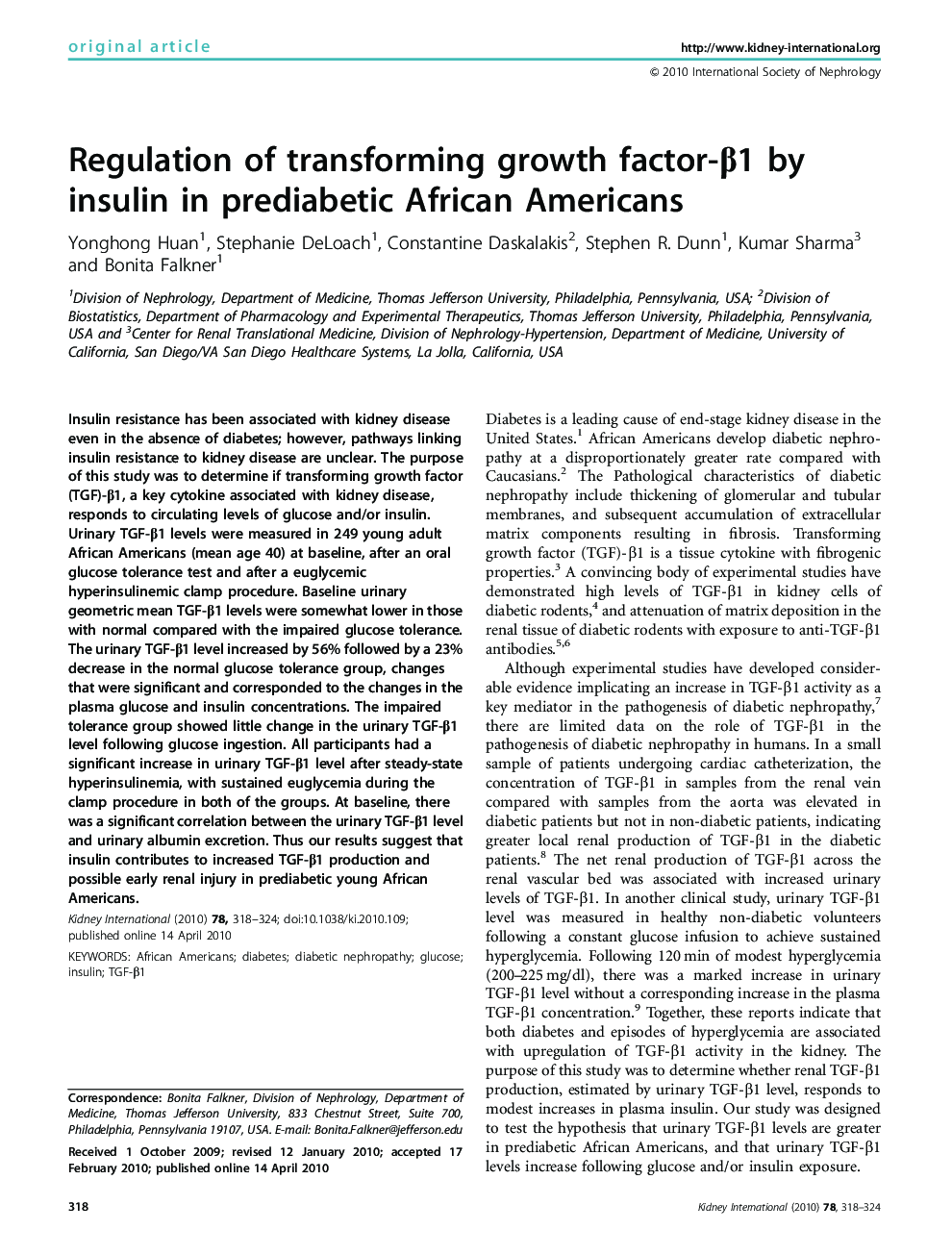| Article ID | Journal | Published Year | Pages | File Type |
|---|---|---|---|---|
| 3884759 | Kidney International | 2010 | 7 Pages |
Insulin resistance has been associated with kidney disease even in the absence of diabetes; however, pathways linking insulin resistance to kidney disease are unclear. The purpose of this study was to determine if transforming growth factor (TGF)-β1, a key cytokine associated with kidney disease, responds to circulating levels of glucose and/or insulin. Urinary TGF-β1 levels were measured in 249 young adult African Americans (mean age 40) at baseline, after an oral glucose tolerance test and after a euglycemic hyperinsulinemic clamp procedure. Baseline urinary geometric mean TGF-β1 levels were somewhat lower in those with normal compared with the impaired glucose tolerance. The urinary TGF-β1 level increased by 56% followed by a 23% decrease in the normal glucose tolerance group, changes that were significant and corresponded to the changes in the plasma glucose and insulin concentrations. The impaired tolerance group showed little change in the urinary TGF-β1 level following glucose ingestion. All participants had a significant increase in urinary TGF-β1 level after steady-state hyperinsulinemia, with sustained euglycemia during the clamp procedure in both of the groups. At baseline, there was a significant correlation between the urinary TGF-β1 level and urinary albumin excretion. Thus our results suggest that insulin contributes to increased TGF-β1 production and possible early renal injury in prediabetic young African Americans.
